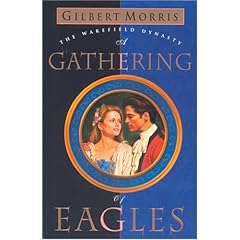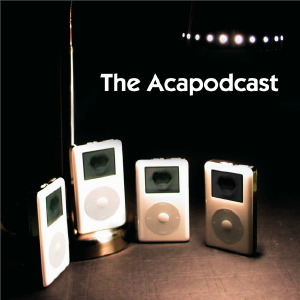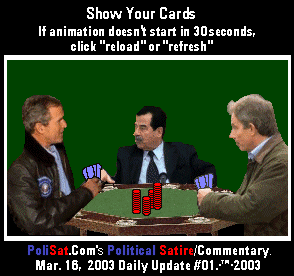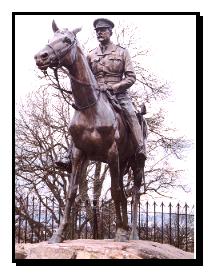ESPN, formerly an acronym for
Entertainment and Sports Programming Network, is an
American cable television network dedicated to
broadcasting sports-related programming 24 hours a day. It was founded by
Scott Rasmussen and his father,
Bill Rasmussen, and launched on
September 7,
1979 under the direction of Chet Simmons, who was the network's first President and CEO (and the United States Football League's (USFL) first commissioner). The current president, since
November 19,
1998, of ESPN is
George Bodenheimer. Bodenheimer is also the current head of
ESPN on ABC, having been named to that position on
March 3,
2003. Its signature telecast,
SportsCenter, debuted with the network and aired its 30,000th episode on
February 11,
2007. ESPN broadcasts primarily out of its studios in
Bristol, Connecticut; it also operates offices out of
Charlotte,
San Francisco, and
Los Angeles which will open in 2009. The network is available in over 100 million homes in the United States and over 150 countries and territories via ESPN International. The name of the sport company was lengthened to "ESPN Inc." in February 1985.
ESPN unofficially refers to itself as "The Worldwide Leader in Sports"; the slogan appears on nearly all company media, though its origin is unknown.
History The roots of ESPN can be traced to Bill Rasmussen, a television
sports reporter for
WWLP, the NBC affiliate in
Springfield, MA. In the mid-1970s, Rasmussen worked for the
World Hockey Association's
New England Whalers, selling commercial time for their broadcasts. His son Scott, a former high school goaltender, was the team's
public-address announcer. Both were fired in 1977 and Rasmussen sought a new business venture. His original idea was a
cable television network (then a fairly new medium) that focused on covering sports events in the state of
Connecticut (for example, the
Hartford Whalers and the
Connecticut Huskies). When Rasmussen was told that buying a continuous 24-hour satellite feed was less expensive than buying several blocks of only a few hours a night, he expanded to a 24-hour nationwide network. The channel's original name was ESP, for Entertainment and Sports Programming, but it was changed prior to launch.
Early years In 1983, The
United States Football League (USFL) made its debut on ESPN and
ABC. The league, which lasted three years and originally consisted of 12 teams, was ESPN's first taste of professional sports.
In
1987, ESPN gained partial rights to the
National Football League. The league agreed to the deal as long as ESPN agreed to
simulcast the games on local
television stations in the participating
markets, which continues today.
ESPN Sunday Night Football would last for 19 years and symbolize ESPN's rise from novelty network to TV institution. In the 2006-2007 ABC's
Monday Night Football, long considered the showcase game of the NFL's week, began to be broadcast on ESPN. This was done to increase viewership of the Sunday night game and make it the "showcase" game.
In 1990, ESPN added
Major League Baseball to its lineup. MLB games are still on ESPN today and are scheduled to continue through 2011.
Jon Miller and
Joe Morgan were named as the broadcasters, and that team also continues to this day.
ESPN at one time has broadcast each of the four
major professional sports league in North America until deciding not to renew the deal with the
National Hockey League after the
lockout, citing ratings for original programming was comparable to those of NHL broadcasts.
Professional sports arrive The 1990s and early 2000s saw considerable growth within the company. In 1993,
ESPN2 was founded, with
Keith Olbermann and
Suzy Kolber launching the network with SportsNite.
Three years later,
ESPNEWS was born, with
Mike Tirico as the first
anchor. (Today, Tirico is
play-by-play announcer on
Monday Night Football.) In 1997, ESPN purchased Classic Sports Network and renamed it
ESPN Classic. The latest ESPN network in the U.S.,
ESPNU, began on
March 4,
2005.
ESPN International began in the early 1990s to take advantage of the growing satellite markets in
Asia,
Africa, and
Latin America. In
Canada, ESPN, Inc. purchased a minority share of
TSN and RDS (in fact, the current corporate logo of both looks similar to ESPN's). In 2004, ESPN finally entered the
European market by launching a version of
ESPN Classic, and in December 2006, it agreed to purchase
North American Sports Network. SportsCenter's primary three broadcasts each day are at 1 a.m.
ET (which re-airs usually until about noon
ET), 6 p.m.
ET, and 11 p.m.
ET.
With the increasing costs of live sports entertainment, such as the U.S.$8.8 billion costs for NFL football broadcasts rights for 8 years, "scripted entertainment has become a luxury item for ESPN", says David Carter, director of the Sports Business Institute at the University of Southern California.
Expansion As mentioned, William Rasmussen founded the network. Just before ESPN launched,
Getty Oil Company (later purchased by
Texaco, now
ChevronTexaco) agreed to buy a majority stake in the network.
Nabisco and
Anheuser-Busch also bought minority stakes.
In 1984, ABC made a deal with Getty Oil to acquire ESPN. They retained an 80% share, and sold 20% to Nabisco. The Nabisco shares were later sold to The Hearst Corporation, who retain a 20% stake currently. In 1986, ESPN became part of the Capital Cities - ABC group when ABC was purchased for $3.5 billion by Capital Cities Communications. In 1995, Disney purchased Capital Cities - ABC for $19 billion and picked up an 80% stake in ESPN at that time. Disney currently holds controlling shares in the network.
 Ownership history
Ownership history In 2004, ESPN opened its
High Definition center in
Bristol, Connecticut. All Bristol based studio shows, including
Sportscenter,
Baseball Tonight,
NFL Live, "
NFL PrimeTime" "
Sunday NFL Countdown", "
Outside The Lines" "
Kia NBA Shootaround", "
NBA Fastbreak", "
College GameNight" and others are broadcast in HD. Also, many of the games that ESPN televises are broadcast in HD. The first program ever broadcast in HD on ESPN was an
NCAA basketball game in 2002, at the
University of Dayton Arena. The first broadcast from the Digital Center was the 11 p.m. ET edition of
SportsCenter with
Linda Cohn and
Rece Davis on
June 7, 2004.
Executives The NFL on ESPN FIFA UEFA ESPN Major League Baseball ESPN Major League Soccer The
NBA on ESPN The Arena Football League on ESPN Little League World Series WNBA on ESPN (Originally the WNBA on ESPN2)
PGA Tour on ESPN PBA Tour presented by Denny's on ESPN LPGA Tour on ESPN NASCAR on ESPN The IRL on ESPN The NHRA on ESPN Champ Car World Series on ESPN The NHL on ESPN ESPN College Football ESPN College Basketball Nathan's Hot Dog Eating Contest: 2003-2007
1987–1989 (Exclusive Cable; Sunday Night; 2nd Half of Season Only)
1990–1997 (2nd Half of Season Only; Sunday Night;
TNT carried early season)
1998–2005 (Exclusive Cable; Sunday Night; full season)
2006–2013 (
Monday Night Football)
FIFA World Cup: 1994, 1998, 2002, 2006, 2010, 2014
UEFA Champions League: 1994-2009
UEFA European Football Championship: 2008
1990–2013
1996–2014
1982–1984
2002–2016
1989–2002
2007–2011
1997–2000 (Contracts with individual races)
2001-2013 (Contract with NHRA)
2007-
1985–1988 (National television deal, agreements with individual clubs as early as 1979)
1992–2004
Bowl Games: 1982— (Contracts with individual bowl games)
ACC: 1998-2010
Big 10: 1979-2017
Big East: 1991-2013
C-USA: -2010
MAC: 2003-2007
Pac-10: Selected non-conference games from 2005-2011
SEC: (?)-2009
Sun Belt: (?)-2007
WAC: (?)-2009
NCAA Division I FCS (formerly Division I-AA), Division II, and Division III playoffs (selected games) and championship games.
NCAA Tournament: 1980–1990 (Contract with
NCAA)
ACC:
Big 10: 1979-2017, ESPN-Plus
Big 12: ESPN-Plus
Big East: 1979-2013, ESPN-Plus
ESPN significant programming rights ESPN has had its own theme music for quite a few years, but early on it used source music.
Music ESPN has become a part of popular culture since its inception. The name is constantly referenced throughout the media in movies and television. While the announcers may be actual personalities, in many films where there is a sporting event, the coverage is by ESPN. People who do not even watch sports are familiar with ESPN. Often this comes in the form of a lampoon of the number of channels ESPN operates. A few examples:
In the
Brad Paisley music video "I'm Gonna Miss Her (The Fishing Song)",
Dan Patrick is seen broadcasting a fictional bass fishing tournament on
SportsCenter.
In the movie
Zathura, Walter is watching
SportsCenter on ESPN while Danny is pestering him, and the TV ends up being destroyed during the first spin of the game by a meteor.
In the movie
Dodgeball: A True Underdog Story, ESPN's growth and addition of new channels is parodied when a major
dodgeball tournament is broadcast by ESPN 8 ("The Ocho"): "If it's almost a sport, we've got it!" (There currently is no ESPN 8). The joke behind this being that in the earlier days ESPN 2 was referred to as "The Deuce" by the network.
In the
Adam Sandler remake of
The Longest Yard,
ESPN2 broadcasts the football game between the criminals and the guards. Also Dan Patrick, ESPN personality, plays a cop who arrests Sandler's character.
In the
Farrelly Brothers comedy
There's Something About Mary, the character Mary—played by
Cameron Diaz—invites her date inside, saying "You want to watch
SportsCenter?"
In the DVD special features in the movie
Anchorman: The Legend of Ron Burgundy, there is a skit that contains the "interview" of fictional anchorman Ron Burgundy (
Will Ferrell) to work at ESPN in 1979; he states that the idea of a twenty-four-hour sports network would be ludicrous. This first appeared on
ESPN.com.
The short-lived 1998 TV series
Sports Night (by
West Wing creator
Aaron Sorkin) was based on an ESPN-style network, with the same witty banter between anchors.
A common joke is to mistake ESPN for
ESP. In an
In Living Color skit, ESPN interviewed "next year's Super Bowl Champions" and covered other similar stories. Also,
Amanda Seyfried's character in "
Mean Girls" mentions her ability to predict the weather, or "ESPN".
In
Jerry Maguire, ESPN was present in the
NFL Draft scene, and one of the last scenes of the movie was an
Up Close interview with
Rod Tidwell,
Cuba Gooding Jr.'s character.
ESPN is referenced in a Simpsons' episode: Homer flips through various channels and stops on a channel which clearly lampoons ESPN, except the network's initials are PENS (an anagram of ESPN).
The film
Days of Thunder features several segments of fictional ESPN reporting, along with several actual ESPN NASCAR commentators.
Tom Cruise's character Cole Trickle claims to have learned much about
NASCAR "by watching ESPN."
Many jokes have been made by comedians about fake obscure sports that are shown on ESPN.
Dennis Miller mentioned watching "
sumo rodeo", while
George Carlin stated that ESPN showed "Australian
dick wrestling". On an episode of
Saturday Night Live, a skit features ESPN 2 airing a show called
Scottish Soccer Hooligan Weekly, which includes a fake advertisement for "Senior Women's Beach Lacrosse".
In the movie
Talladega Nights, staring
Will Ferrell, the fictional character Ricky Bobby is interviewed by an ESPN reporter.
Several SportsCenter anchors are featured in the
Hootie & the Blowfish video for "Only Wanna Be With You".
In the movie
Mr. 3000 Stan Ross is frequently talked about on ESPN shows like
SportsCenter, and
PTI. After Stan got 2 hits, one away from 3000, ESPN went from talking bad about him, to interviewing him and apologizing.
Angela Bassett's character, Maureen Simmons, is an assignment reporter for ESPN. The last game of the season is on ESPN's
Sunday Night Baseball.
In the movie
Baseketball ESPN personalities Dan Patrick and Kenny Mayne discuss the Denslow Cup championship on Sportscenter.
In the movie
The Waterboy ESPN Sportscenter shows coverage of a University of Michigan football game as they try to use their towel boy at wide receiver in response to Bobby Boucher's success.
In the movie The Sentinel, the main character wakes up and is working out in front of a t.v., which Sportcenter is on.
There are at least four children named after the network.
ESPN in popular culture ESPN business ventures ESPN.com (1995–present)
ESPNU.com (2005-present)
EXPN.com (1998-present)
ESPN The Magazine (1998–present)
ESPN Deportes La Revista (2005–present)
ESPN Original Entertainment (2001–present)
ESPN Books (2004–present)
ESPN Zone (1998–present)
ESPY Awards (1993–present)
ESPN Integration (2006–present)
ESPN Online Games (2006–present)
ESPN Broadband (2002–present)
Partial interest in the
Arena Football League (2006–present, in exchange for television rights).
Current Mobile ESPN (2006)
Former The ESPN family of networks ESPN (1979–present)
ESPN on ABC (2006-present, replacing ABC Sports)
ESPN International (1989–present)
ESPN2 (1993–present)
ESPNEWS (1996–present)
ESPN Classic (1997–present)
ESPNU (2005–present)
ESPN Deportes (2004–present)
ESPNHD (2003–present)
ESPN2HD (2005–present)
ESPN Plus (–present)
ESPN PPV (–present)
Television ESPN Motion (2003–present)
ESPN 360 (2005–present)
ESPN.com Radio


 Geography
Geography


 There are also a number of fresh water lakes which provide a variety of activities including, walking, swimming, fishing, canoeing, sailboarding and also picnicing.
There are also a number of fresh water lakes which provide a variety of activities including, walking, swimming, fishing, canoeing, sailboarding and also picnicing.
 Other duties
Other duties
 Emulating instruments
Emulating instruments

 Elementary schools
Elementary schools
 Ownership history
Ownership history
 Later life
Later life Lefthit
Lefthit